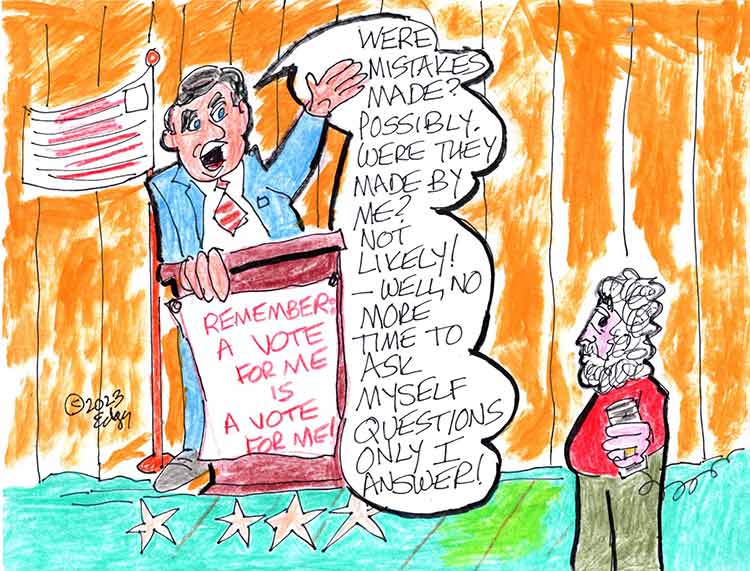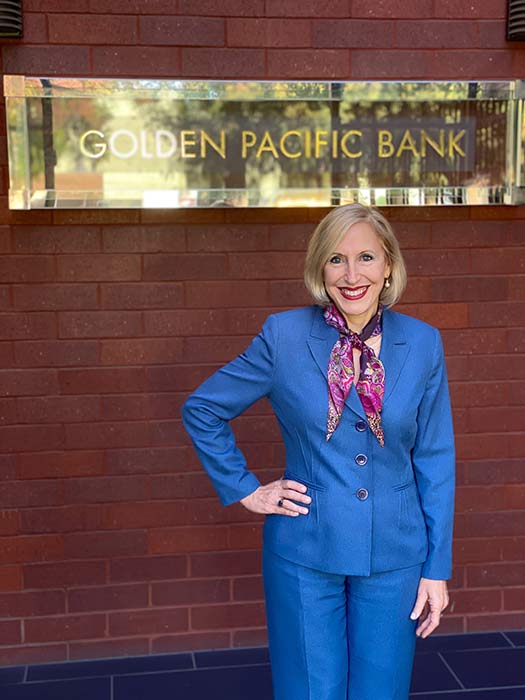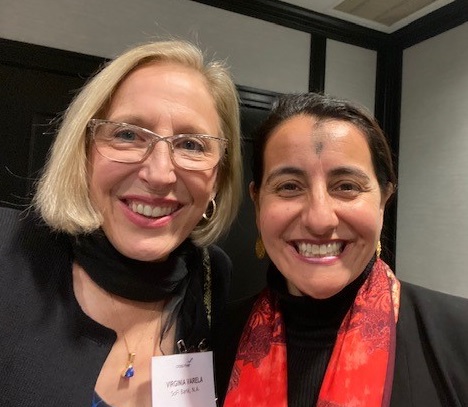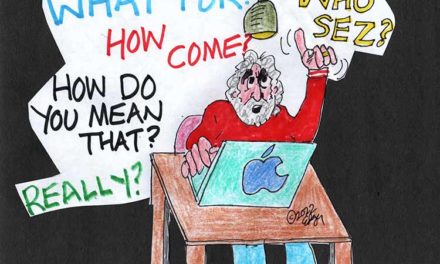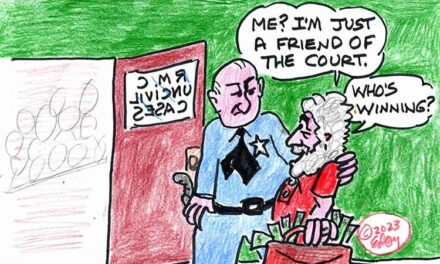The Political “We”—A Helpful Intro
Here are some simple ways to decide if you’re an I, We, You or They
By Ed Goldman
When does a politician go from being an “I” and a “me” to being a “we” and an “us?”
When Mike Pompeo (R-Venus) announced last Fall that he’ll decide this coming Spring if he’ll run for President, his statement included references to himself in both the plural and the singular. He even managed to call himself a “one” and a “they.”
The Dais of Our Lives
But when he said he was a “you,” thereby relegating himself grammatically to second-person status, it made me wonder if his real dream is to run for Vice President.
Here’s a statement he made to CBS News, whose reporter had observed that Pompeo’s weight loss of 90 pounds at the time might mean he was trying to shape up for a national race (the italics below are mine—and I may want them back someday):
“At this point… he’s still thinking about it,” the network reported. “‘We haven’t figured that out,’ he said. ‘You know—one could draw a straight line there [between his diet and his ambitions]. One shouldn’t. That would be bad data management. I was fitter before I was in politics, too, so this is not unique. You don’t have to decide you want to run for President to get healthier. … One has to conclude that they are best suited to lead this nation forward. And if we were to conclude we were…and it’s the right thing to do, we’ll run.'”
- How many people does Pompeo think he is?
- Is this a man with multiple personalities?
- Is Pompeo, the former U.S. secretary of state, counting the removal of Jeff Sessions, the former U.S. attorney general, as part of that reported 90-pound weight loss? (Sessions makes Marco Rubio look like U.S. Senator John Fetterman—who, in turn, makes The Incredible Hulk look like Jeff Sessions.)
While people are lately choosing non-binary pronouns for themselves, they’ve got nothing on our electeds. They’ve been doing this dodge for years.
For example, if something goes right, “I” did it. If something has mixed results, “we” did it. If something is an abject failure, “Mistakes were made.” Exactly by whom is rarely iterated. In fact, the practiced pol usually poses a non-rhetorical question that he answers himself ambiguously: “Were mistakes made? Possibly.”
a. If our domestic partners catch us in a lie, couldn’t we just say, “We’re sorry”?
b. If our domestic partners catch us having an affair, why not, “Mistakes were made”?
c. And if (b) causes our domestic partners to file for a very expensive divorce, can’t we just say, “Let the healing begin”?
That last one seems to be the first thing that flies out of a politician’s mouth moments after a tragedy occurs on his or her watch. I suppose it’s meant to sound reassuring and conciliatory; but to me, it seems as automatic and insincere a response as “Thoughts and prayers” or my personal pick for vacuity, “It’s about time these random shootings stopped.” Yeah, that oughta do it.
For supplemental reading, this is also how the country solved its homelessness problem—by having politicians make statements like, “We need to end homelessness. I mean now. Really. Enough is enough.”
“Enough is enough” is another good catch-phrase to memorize if you’re planning on making a public statement when a serial killer, peeping Tom, tax hike or tsunami strikes.
It all somehow reminds me of the false bravado someone will say in an old cowboy movie: “Back where I come from, them’s fightin’ words!” Once you say something like that, how do you “walk it back,” as they say? Here’s how: You quickly add, “Then again, I ain’t back where I come from.”
One final note: Don’t “walk it back” and “I, we or they lied” mean the same thing? Please open your bluebooks and reply in the next 15 minutes. If you use 500-1,000 words to say absolutely nothing in direct response, you’ll receive extra credit and possibly an internship on the Pompeo for President team.
Ed Goldman's column appears almost every Monday, Wednesday and Friday. A former daily columnist for the Sacramento Business Journal, as well as monthly columnist for Sacramento Magazine and Comstock’s Business Magazine, he’s the author of five books, two plays and one musical (so far).
Yes, Virginia
A Weekly Blog by Virginia Varela
President, Golden Pacific Bank, a Division of SoFi Bank, Inc.
photo by Phoebe Verkouw
WOMEN’S HISTORY IS HER STORY
March is Women’s History month, or “Herstory” month. To honor that, we’re celebrating some of the different strong women of power who are making a difference in the financial services world.
On a national level, women have been making great strides to assume leadership positions that are central to influencing change and innovation in the way we bank.
This week let’s recognize Senator Monique Limón.
The attached photo is of Ms. Limón and me at a forum on bank and fintech partnerships last month. She and I are two of the invited speakers this month at the 2023 Women In Banking Forum of the California Bankers Association, for which approximately 100 California women bankers will come together to network, as well as gain valuable insights and inspiration to grow their careers.
Senator Limón and Virginia Varela
Senator Limón has an impressive professional story to tell. From her bio: “Senator Monique Limon was elected to the Senate in November 2020 and represents the 19th Senate district that includes all of Santa Barbara County and over half of Ventura County.
“Born and raised in the 19th district, Monique has worked continuously to serve her community as an educator, leader, and an advocate for causes advancing the quality of life in her community.
“Before the State Senate, Monique served as the Assemblymember for District 37. Serving four years in the State Assembly, Monique was Chair of the Banking and Finance Committee and Vice-Chair of the Legislative Women’s Caucus.
“For Monique, education has always been a priority. A UC Berkeley graduate with a Master’s degree from Columbia University, Monique served two terms on the Santa Barbara Unified School Board and as Assistant Director for the McNair Scholars Program at the University of California, Santa Barbara prior to serving in the Senate.
“Monique has worked with countless local students at Santa Barbara City College and UCSB as an advisor and mentor to help them achieve their professional and academic goals through higher education.
“Women’s issues are also a priority for Monique.
“As former Commissioner on the Santa Barbara County Commission for Women she helped connect private and public resources with women in the community. Monique has a passion for bringing community groups together and building strong coalitions among local nonprofit organizations and civic groups.
“Monique’s roots go deep in the 19th district. Her extended network of family and friends include a range of small-business owners and important leaders in the community. Her husband, Michael Medel, works at Santa Barbara City College as Director of Admissions and Records and serves as President of the 19th District Agricultural Association. Monique and Michael were both raised in the area and currently live in Goleta.”
And there you have it: Your classic Local Girl Makes Good story. But in this case, it’s the story of a Local Woman Doing Good.
sponsored content



